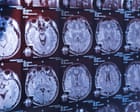Prof Mark Pallen, Dr Aimee Parker, Prof Nick Loman and Prof Alan Walker take issue with an article that discussed the existence of a brain microbiome and its impact on diseases
Contrary to what is implied in your article (The brain microbiome: could understanding it help prevent dementia?, 1 December), the weight of expert opinion in medical microbiology rejects the existence of a “brain microbiome” in the sense of a resident microbial community in healthy human brains. While pathogenic microbes – such as Borrelia burgdorferi, which causes Lyme disease, or fungal pathogens like Cryptococcus neoformans – can invade the brain and cause neurological symptoms, these are examples of infections, not evidence of a native microbial community.
Similarly, cognitive benefits of vaccines can be explained by their role in preventing infections or modulating immune responses and inflammation, rather than any impact on a “brain microbiome”. Furthermore, the studies cited in the article have not undergone independent validation, nor do they provide any kind of consistent picture. This mirrors controversies around other supposed microbiomes – such as that of the placenta – which have failed to withstand independent scrutiny. Over a decade of research indicates that contamination, typically from laboratory reagents, is the most plausible explanation for such findings, particularly when even supposedly ultrapure water has been shown to harbour DNA signatures and culturable microbes.








More Stories
Bankrupt DNA testing firm 23andMe to be purchased for $256m
Sea level rise will cause ‘catastrophic inland migration’, scientists warn
Bees face new threats from wars, street lights and microplastics, scientists warn